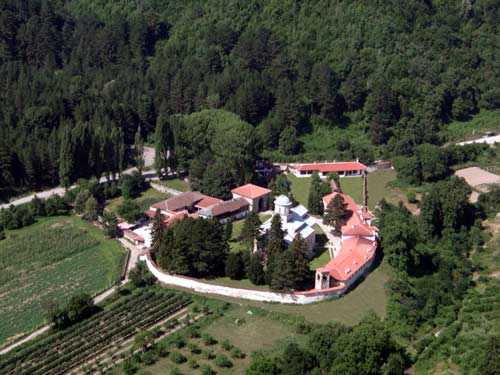Times have changed. To join the EU, white paw required...
(BRUSSELS2, analysis) The cautious language of the "27" on the future accessions of the Balkans - see the slow race of the Balkan countries to join the EU - barely hides several developments that are not really in line with enlargement. One can thus trace several reasons, institutional, political, economic and social which do not really go in this direction currently. It is therefore not surprising that the number of States reluctant to new memberships tends to increase rather than decrease over time. The leaders of the candidate countries must therefore be aware of this...
First, the European Commission, which is constantly pushing for enlargement, is no longer really in the odor of sanctity. His reports, which are too optimistic, even unrealistic, ring false. To the point that they are now hardly read in certain capitals which consider his recommendations for the opening of negotiations illusory. Result: one problem is enough for a country.
Secondly, States are no longer ready, as in the past, to give their discharge, without thinking too much about it. The example of Romania and Bulgaria has gone through this, with its train of reforms not yet applied. The fight against corruption at the highest level of the top of the state acts as a scarecrow. It is not a question, here, of the fight against "banal" organized crime but of ending up with a "rotten state" at its head....
Thirdly, needless to say, the financial and political difficulties in Greece as in many countries (Italy, Spain...) do not help this leniency. It is no longer a question of expanding for the sake of expanding. And to end up with increased budgets, due to the need to incorporate more civil servants, more languages to translate, and more direct payments for the common agricultural policy... The "stingy club" is in the majority here.
Fourth, the political, economic and social climate makes it increasingly difficult for each of the European leaders to convince their population of the benefits of enlargement. If indeed there was a forged public opinion on the issue, it is about to turn around in many countries. And from being indifferent, she becomes hostile. Even supposing an economic reversal in a few years, it will be difficult to "bet" on a reversal of public opinion if notable proof of the necessity and interest of these new memberships is not proven. Even the United Kingdom, a traditionally open country, has reopened the exception clause to the free movement of Bulgarian and Romanian workers.
Cinquièmement, Europe has other concerns. It is not only a question of resolving the financial and budgetary crisis, but of reviving the economy. It is not only a question of facing the present but also of setting up a new, more integrated structure for the Euro Zone. In other words, to go back to the old scheme – enlargement or integration – the time is today for integration rather than enlargement.
Sixth, it must also be taken into account that the incorporation of the new Balkan countries will make the European organization take a new leap forward, which would thus eventually have 35 States (Iceland, Montenegro, Serbia, Albania, Fyrom, Bosnia-Herzegovina, 36 if you include Turkey. The organization of European structures will suffer. As many as 25 then 27 we can manage. As many as 35 or 36, certain meetings will become impossible to hold. This will be particularly the case in the Council of Ministers - the most impacted by the increase in the number of political leaders - and at the European Commission. at some point, some of its institutional reforms will have to be brought back to the table, or there will have to be a real adaptation of all the European structures (Council formations, Commission deliberations, European Parliament committees) which will have to be organized in a "Zone Euro", and much more integrated than today.
Times have changed
Since the 1990s and 2000s, the atmosphere is no longer the same. We talk about enlargement fatigue. Without doubt. But it is also that experience played a role. Membership is no longer quite a process played in advance, where one can hope to enter the EU with some adjustments (of date or conditions). It is necessary that the leaders of a member country really show "white paw", comply with the conditions indicated, not only on paper but in reality. They must also demonstrate a certain flexibility and dynamism in the execution of its conditions. Being outside the "club" now requires fulfilling not only the conditions set by the "club" but also by certain members of the "club". The European "contract" is thus increasingly becoming a "contract of membership", with fewer negotiable clauses, rather than a contract shared equitably and amended in common. The more time delays, the less the perspectives get closer. Playing the watch is no longer, in fact, a good guarantee as in the past. On the contrary... Some leaders seem to have more or less understood it (the Serbs for example, year after year), others (like the Bosnians, the Macedonians of Fyrom or the Albanians) seem to be playing dumb.
NB: The palm of idiocy can - I think - be attributed to those responsible for FYROM. The country was the first to obtain the status of candidate country (in 2005) and since then it has dragged on and on... the European Union, which he seems to be pushing back indefinitely... Greek!

